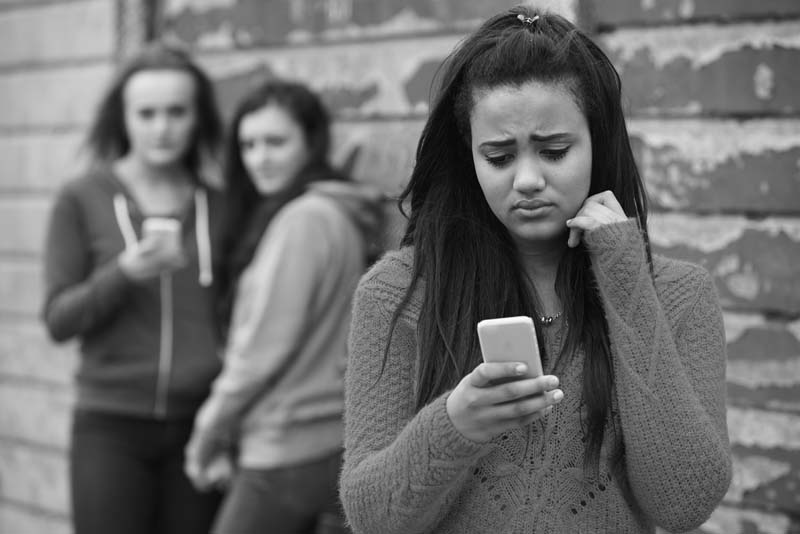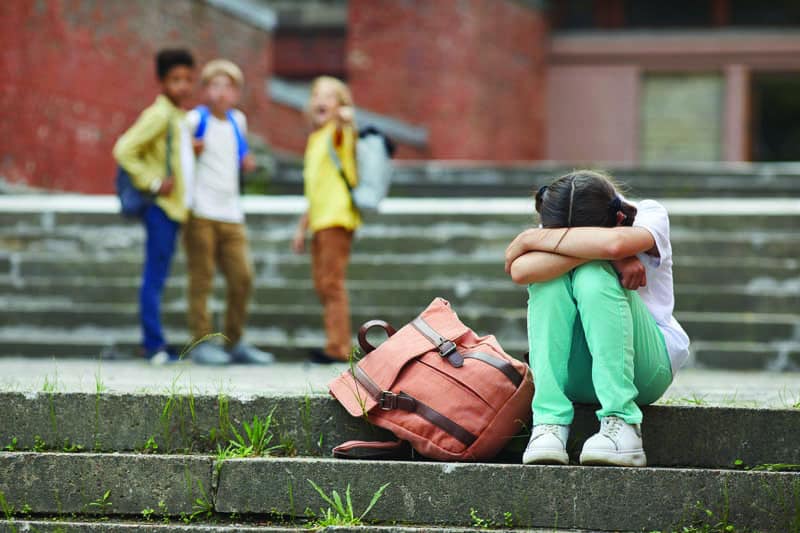Bullying Facts and How to Report a Bully in Tampa Bay
DID YOU KNOW? October is National Bullying Prevention Month, a time dedicated to raising awareness about bullying and what we can do as a community to prevent it.
Hillsborough County Board of County Commissioners Anti-Bullying Advisory Committee shares its information brief on bullying and cyber-bullying
It is estimated that as many as 50% of children experience or witness bullying at some point, with approximately 20% experiencing some form of bullying each year. Bullying is defined as when a person is exposed, repeatedly and over time, to negative actions on the part of one or more people.
Bullying may include acts of physical violence, harassment, intimidation, verbal and emotional assault, and other behaviors intended to physically or emotionally inflict harm on the victim.
With increasing access to cell phones, iPads, online gaming, and social media, children and youth are increasingly exposed to cyber-bullying.
Types of Bullying
Bullying can be categorized as direct-physical bullying, direct-verbal bullying, indirect, relational bullying and cyber-bullying.
- Direct-physical bullying: physical aggression against another person, typically in the form of punching or hitting.
- Direct-verbal bullying: verbal assaults such as name-calling, insults, threats or intimidation.
- Indirect-relational bullying: an indirect act against another that includes spreading rumors, social exclusion, social isolation and other socially punitive behaviors.
- Cyber-bullying: may include both verbal and relational bullying and is particularly problematic because, while traditional bullying occurs within the confines of a physical environment such as school or playground, cyber-bullying can occur at times and places—such as in the home—that are traditionally safe havens.

Impacts of Bullying
Contrary to historic interpretations of bullying as part of an innocent rite of passage, research has demonstrated the physical and psychological damage bullying can do to children and youth. For both victim or perpetrator, bullying can cause physical, emotional, and behavioral problems. Depression, anxiety, low self-esteem, delinquent behavior, and poor school attitudes are frequent outcomes of being a victim of bullying.
Research suggests that cyberbullying may have an even larger influence on an adolescent’s emotional development than conventional bullying because the victim is often unaware of the perpetrator’s identity. Cyberbullying is particularly troubling because cyber-bullying messages and images can be posted anonymously, distributed quickly, and are extremely difficult to delete or remove.
Finally, although rare, research has shown that bullying behavior is associated with suicidal ideation and suicide attempts, with girls particularly susceptible to suicidal ideation as a result of bullying.
Related: Bullying Prevention Tips from Johns Hopkins All Children's Hospital
What Parents Can Do About Bullying
- Discuss the dangers of bullying and cyberbullying with your kids.
- Talk to teachers and guidance counselors to understand your school’s policies and procedures and how to report bullying.
- Make it clear that you won’t blame your kids if they are the victim of bullying or cyberbullying and that you will not take away their computer privileges. This is often the main concern that prevents kids from reporting that they have been cyber-bullied.
- Set up email and chat accounts with your kids. Make sure you know their screen names and passwords.
- Keep the computer in a common area, instead of in your child’s bedroom.
- Learn how various social media apps and websites work and ask your children to show you their profiles.
- Should your child be the victim of cyberbullying, print out any hurtful messages or comments as proof.
- Report bullying when it happens.
How to Report Bullying
- Hillsborough County School District Bullying Prevention: www.sdhc.k12.fl.us/doc/list/bully-prevention/about/125-516
- Crime Stoppers of Tampa Bay: www.crimestopperstb.com, Dial: 800-873-8477
- Crisis Center of Tampa Bay: www.crisiscenter.com, Dial: 211
- Hillsborough County Tip411: Sheriff’s office tip-line app can be downloaded for Apple and Android. Search: HSCOSHERIFF
- Pasco County Schools Report a Bully Form: https://www.pasco.k12.fl.us/ssps/stop_bullying/
- Pinellas County School Bullying Prevention: https://www.pcsb.org/page/3639
National Resources
- How to Prevent Bullying U.S. Gov. website: www.stopbullying.gov
- Fast Facts: Preventing bullying, CDC: www.cdc.gov/violenceprevention/youthviolence/bullyingresearch/fastfact.html
- Information on using the internet and social media safely: www.connectsafely.org
- Cyber-bullying Research Center: www.cyberbullying.org
Bullying By the Numbers
- 70% of students report seeing frequent bullying online.
- Nearly 43% of kids have been bullied online.
- Only one in 10 victims will inform a parent or trusted adult of their abuse.
- 81% of kids think bullying online is easier to get away with than bullying in person.
- 83% of students who had recently experienced cyberbullying had also recently been bullied at school.
Originally published in the October 2022 issue of Tampa Bay Parenting Magazine.


